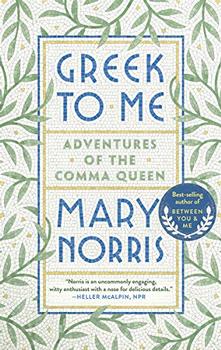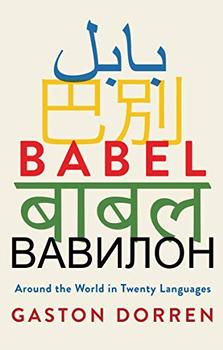Summary | Excerpt | Reviews | Beyond the book | Read-Alikes | Genres & Themes | Author Bio

How Every Letter Tells a Story
by Michael RosenMichael Rosen takes you on an unforgettable adventure through the history of the alphabet in twenty-six vivid chapters, fizzing with personal anecdotes and fascinating facts
How on Earth did we fix upon our twenty-six letters, what do they really mean, and how did we come to write them down in the first place?
Michael Rosen takes you on an unforgettable adventure through the history of the alphabet in twenty-six vivid chapters, fizzing with personal anecdotes and fascinating facts. Starting with the mysterious Phoenicians and how sounds first came to be written down, he races on to show how nonsense poems work, pins down the strange story of OK, traces our five lost letters and tackles the tyranny of spelling, among many many other things. His heroes of the alphabet range from Edward Lear to Phyllis Pearsall (the inventor of the A-Z), and from the two scribes of Beowulf to rappers. Each chapter takes on a different subject - whether it's codes, umlauts or the writing of dictionaries. Rosen's enthusiasm for letters positively leaps off the page, whether it's the story of his life told through the typewriters he's owned or a chapter on jokes written in a string of gags and word games.
This is the book for anyone who's ever wondered why Hawaiian only has a thirteen-letter alphabet or how exactly to write down the sound of a wild raspberry.
Some readers might find Rosen to be trying to do too much. At times the subjects he covers link only tenuously to the chapter letter. In I for Improvisation, for instance, he hops from animal noises to apostrophes to forms of address, seemingly at random. Inevitably some topics are touched on only lightly; for a more in-depth understanding of the history of the English language readers might want to turn to more specialist scholars of language such as David Crystal or Seth Lerer. That said, Alphabetical is a pleasing and interesting read: the kind of book where a lover of language will find information entertainingly presented and where even the most knowledgeable will likely learn something new...continued
Full Review
 (583 words)
(583 words)
(Reviewed by Kate Braithwaite).
In reviewing Alphabetical: How Every Letter Tells a Story, by Michael Rosen, I wrote that most readers would learn something, however small, from such a wide-ranging look at the English language. In my case, I was introduced to the Voynich Manuscript, written in central Europe in the fifteenth century, in a language that no expert has been able to translate. Rosen is firm in his assertion that the manuscript is a complex hoax but in truth theories about its provenance and meaning abound.

The story of the manuscript is as interesting as any lover of books and mysteries could wish. Around 1912, Wilfrid Voynich, a Polish refugee who became a naturalized British citizen and a London bookseller, acquired thirty ...

If you liked Alphabetical, try these:

by Mary Norris
Published 2020
The Comma Queen returns with a buoyant book about language, love, and the wine-dark sea.

by Gaston Dorren
Published 2019
Witty, fascinating and utterly compelling, Babel will change the way you look at and listen to the world and how it speaks.